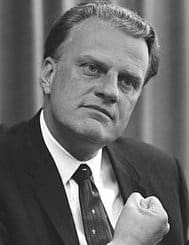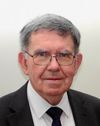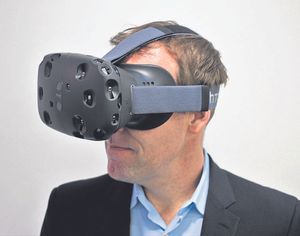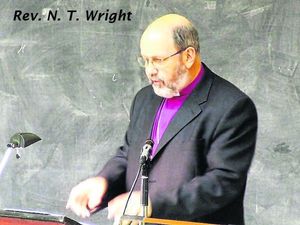The state of evangelicalism in Scotland in 2017 reveals a much more complicated picture than 1967.
At that time there were several main denominations of considerable strength. On the Presbyterian side there were the Church of Scotland, along with the United Free Church of Scotland, Free Church of Scotland, and Free Presbyterian Church of Scotland, with a small Reformed Presbyterian Church.
On the independent scene there were the Baptist Union, Congregational Union, Methodists and Brethren Assemblies. Some were solidly evangelical, others had a percentage of such in their midst.
But in the last 30 years in particular there has been a marked change in the evangelical landscape. There are now eight Presbyterian churches. The mainstream independent churches are scarcely recognised as evangelical, except for the Brethren whose assemblies are now largely identified as evangelical churches. And in the last 20 years there has arisen a real plethora of smaller independent groupings and congregations.

Church of Scotland
In the late 1950s, following the Billy Graham Crusades and Tell Scotland, the membership of the Church of Scotland (CS) stood at a record high of 1.32 million. This accounted for 60 per cent of the adult church membership in the land.
By 1984 the membership had been reduced to 854,000. The recently published 2016 church census shows that total church attendance in Scotland is now down to 390,000, which is 7.2 per cent of the Scottish population.
An interesting statistic to emerge from the census was that 40 per cent of the churches (as given by their minister) were evangelical, up from 38 per cent in 1994. On churchgoers (as distinct from churches), 35 per cent claimed to be evangelical. This is not surprising in that by far the greatest decline has taken place in the liberal churches, although in the 2016 census the term ‘evangelical’ is used in the broadest sense.
There was a time when prospects for the growth of evangelicalism in the CS were good. The resurgence of conservative evangelicalism within the Kirk in post-war years meant a growing bond of fellowship between ministers and congregations of that persuasion. This led to the formation of the Crieff Fraternal (or Brotherhood) in 1970, led by Rev. William Still, and supported by such ministers as brothers James and George Philip and Eric Alexander.
Their aim was to work internally through prayer and expository preaching to reform the CS. It has been reckoned that one-sixth of the ministers were associated with the Crieff Fraternal. If so, the overall proportion of evangelicals in the Kirk could have been as high as one quarter.
The failure of the ‘Crieff strategy’, as highlighted by Dr Carl Trueman and others, proved to be a watershed in the decline of the CS. The public silence of evangelicals at critical moments in church courts led to the undermining of evangelicalism within the CS. The liberal hierarchy gained virtually unchallenged sway and began to legislate ungodly measures.
Evangelical ministers began to leave her ranks, some on their own, others with supporting members, to join the Free Church of Scotland. A few allied themselves to the International Presbyterian Church. Others, particularly the larger congregations, such as the Tron in Glasgow, Holyrood in Edinburgh and Gilcomston in Aberdeen, chose independence for the present. Quite a number of evangelical and Reformed ministers remain in the Kirk, believing it is their duty to do so.
Free Church
The second largest Presbyterian church, the Free Church of Scotland (FCS), was solidly evangelical and Reformed in her ministry. There were indications of some differences within her ranks in the late 1980s and 1990s. This came to a head in January 2000 when, over a disputed discipline case, about one-tenth of the numerical strength, separated to become the Free Church of Scotland (Continuing) (FSCS).
The FCSC has sought to maintain continuity with the doctrine, worship and discipline of the Free Church of 1843 and 1900. In 2010 the main FCS body altered her stance on worship, permitting the use of hymns and instrumental music. This led to a minor exodus of three ministers to the Reformed Presbyterian Church in that year.
However, the change in worship made it easier for CS evangelicals to join the ranks of the FCS. Thus, together with a few numerically thriving congregations in the main cities, and some successful church plants, the FCS has grown in size and has within her ranks several gifted communicators who have gained national recognition. On the other hand there have been some ministerial casulities in her ranks in recent times and there is a worrying trend of laxity in dealing with those who step out of line.
The Free Presbyterian Church of Scotland (FPCS) suffered an exodus from her ranks in 1989, with the formation of the Associate Presbyterian Churches (APC) on the issue of Christian liberty. While the FPCS remains unchanged in her testimony, the APC are in talks with the FCS for possible union.
Independent growth
The rest of the evangelical witness in Scotland is spread over a wide spectrum of groupings and individual congregations. There is the Fellowship of Independent Evangelical Churches, which has 23 congregations, including Harper Memorial Baptist Church in Glasgow and Charlotte Chapel in Edinburgh.
The Charlotte congregation recently made a move from its historic location in Rose Street to a more commodious building, the old St George’s West, made famous by Dr Alexander Whyte.
Ministers and congregations have left the Baptist Union over the years and joined other groupings. There has been a modest growth in the number of Reformed or Grace Baptist churches. The churches of a Pentecostal conviction have doubled since 2002 and stand at 19,000, which is 5 per cent of all churchgoers.
A grouping called CLAN (Christians Linked Across the Nation) is largely Pentecostal. The census statistics also reveal that 12,000 people in Scotland regularly attend 300 new churches started since 2002. A recent phenomenon is ‘messy churches’, church plants that would define their mission in most cases as ‘evangelical’; the 2016 census gave an estimate of up to 600. There are also numerous ethnic or immigrant churches now in Scotland.
Assessment
Although evangelicalism is spread across more churches and groupings than in 1967 yet it is spread rather thinly. There was a doctrinal depth and distinctive spirituality about the older conservative evangelicalism that seems to be missing today.
When there appeared to be a lack of success through the old methods of church growth and conversion work, instead of seeking the deeper spiritual causes, there has come in a reliance on improved methodology as a means to achieving success.
A decline in reading has brought a growth of biblical illiteracy. There is now a disconnection with our Protestant and Reformed heritage. Preaching has begun to lose its centrality in the worship of the church and what might prove offensive to the newcomer set aside.
Contemporary worship has been embraced, with a sweeping transformation of ̒praise’ embracing song-leaders and bands. An increasing place given to the observance of festivals of the Christian Year seems to be filling a spiritual vacuum in some former distinctly Reformed congregations.
As far as the increasing number of ‘newer’ churches are concerned, many are being led by lay people, often without theological training, and showing a marked informality in worship. There is usually just one service on the Lord’s Day, and the observance of a whole Sabbath day — as used to be kept in Scotland for centuries — is disappearing.
Worldliness is creeping in and, for many of the new congregations, such things as keeping the Ten Commandments would be regarded as legalistic. Many congregations are focused on using courses investigating Christianity, like the ‘Alpha Course’ (35 per cent of churches had undertaken it in 2016) or ‘Christianity Explored’ (10 per cent of churches in 2016).
Recovery needed
In summary, the church in Scotland stands in desperate need of a return to the authority and sufficiency of Scripture. The preaching of the Word has to be restored to a central place once again. It is ‘the spirit of the age’ that seems to determine so much of the strategy in many of the churches.
There needs to be a recovery of the conviction that evangelical belief is timeless and unchanging. It is when the church is most unlike the world that she has the greatest impact on society.
How good it would be to see those within the evangelical and Reformed constituency, who hold to these views, showing a more united front against the liberalism of the mixed denominations and against the growing humanism and secularism of a nation, once so richly blessed by God!
John J. Murray ministered in the Free Church Continuing before retiring. He was Moderator of the FCC General Assembly in 2003.















